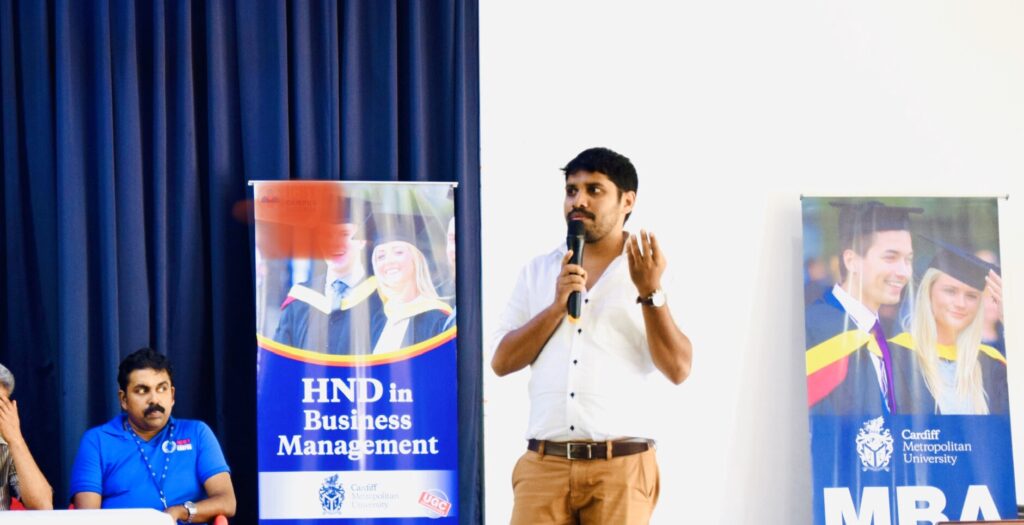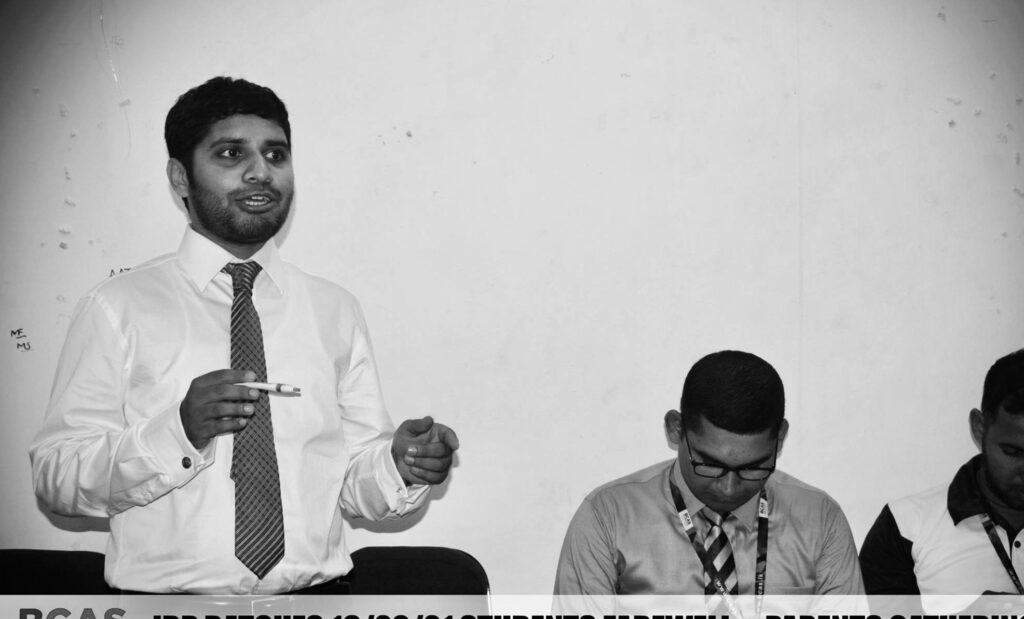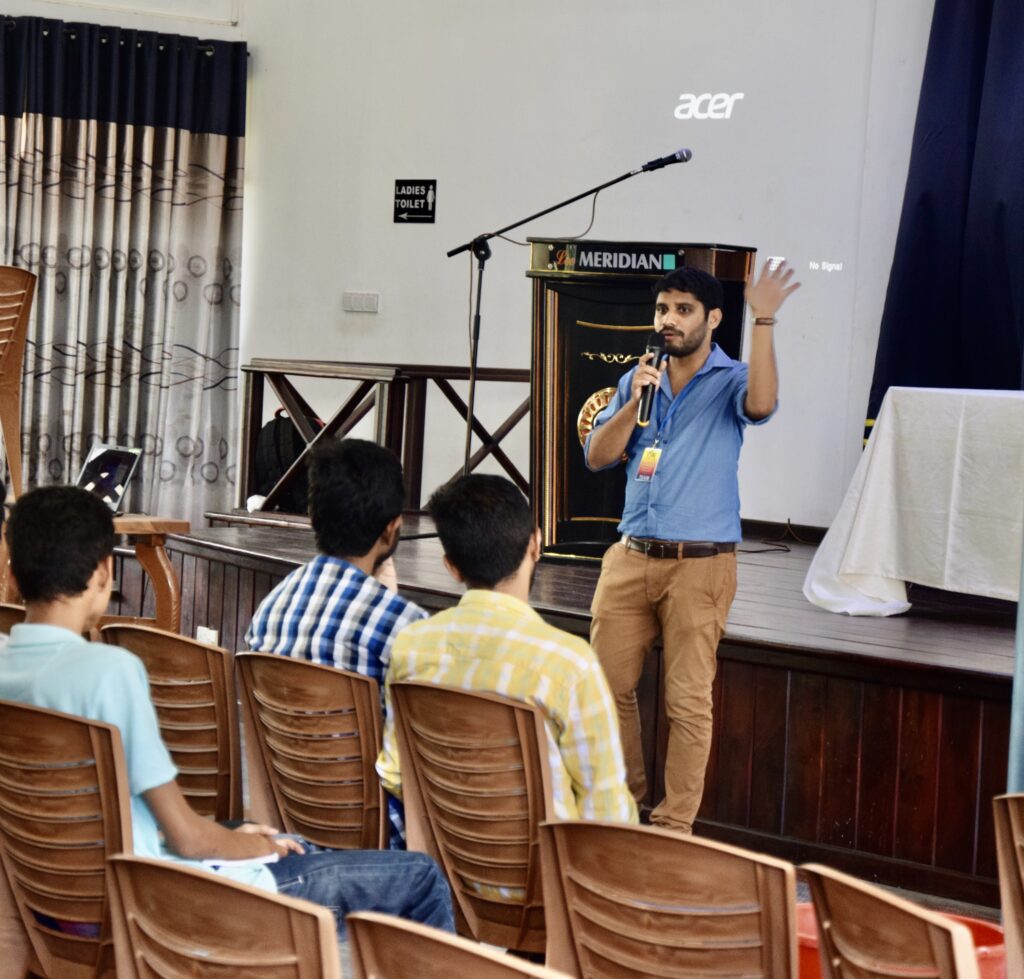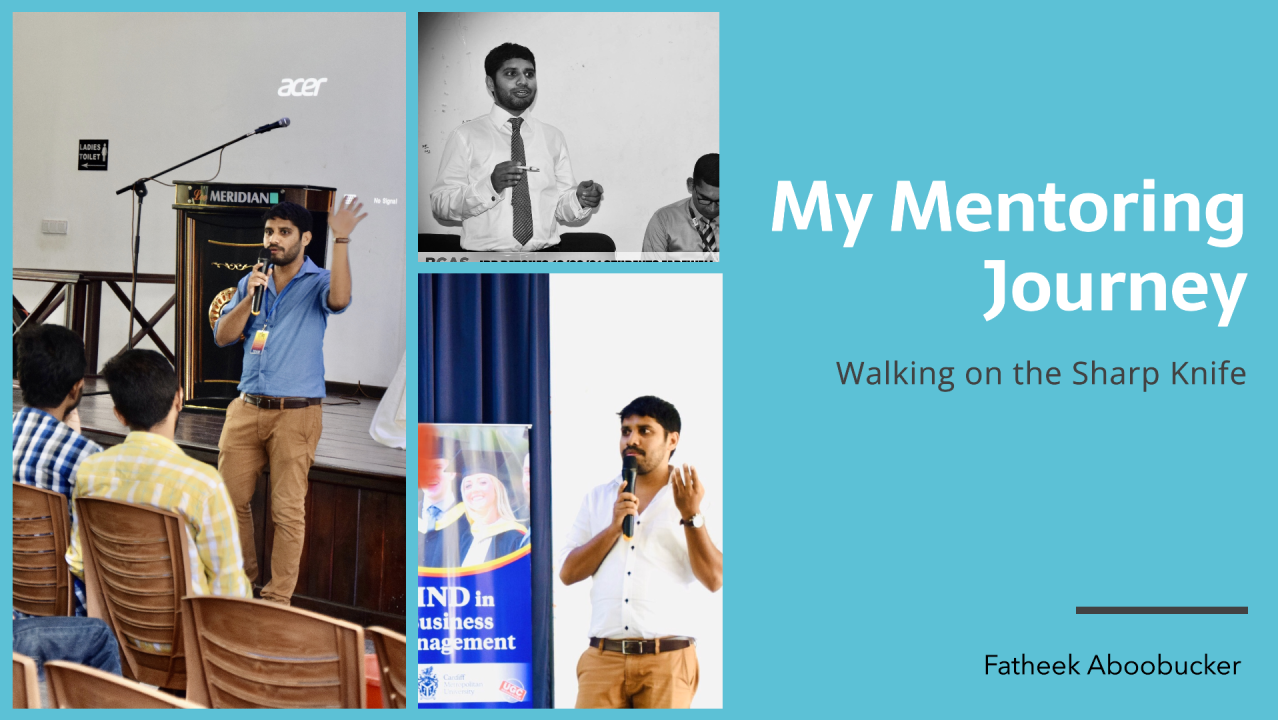The Beginnings: A Strategic Commitment
When I first commenced the mantle of a mentor as a passion yet on-demand, the gravity of the responsibility was unmistakable. The educational landscape was not merely shifting; it was undergoing a seismic transformation, driven by the relentless advance of technology and the proliferation of new digital tools. The pressures on today’s students extend far beyond the confines of academic achievement—they are now required to navigate a world where the ability to master digital skills and adapt to emerging technologies is as critical as their foundational education.
In this rapidly evolving environment, it became abundantly clear that traditional paradigms of mentorship were inadequate. Students were no longer content with conventional academic success; they were in pursuit of something far more nuanced—a deeper sense of purpose, strategic direction, and pathways to careers that were being redefined in real-time by technological innovation. The challenges they face are complex and multifaceted: understanding how to leverage cutting-edge technology, cultivating unique skill sets that differentiate them in an increasingly competitive market, and identifying new opportunities within the ever-expanding landscape of career-based knowledge.
It was evident to me that these students needed far more than just academic guidance. They required a mentor who could offer strategic insight, someone capable of walking alongside them through the complexities of a world in flux. My role was to help them decode the rapid changes they were witnessing, to equip them with the tools to harness technology to their advantage, and to guide them in developing the adaptability and resilience required to excel in an era characterized by perpetual innovation.
Taking on this mentorship role was not merely a professional obligation; it was a strategic commitment to prepare students for the realities of the modern world. This meant moving beyond static knowledge transfer, towards fostering a mindset geared towards continuous learning, critical thinking, and the ability to pivot and adapt as circumstances evolve. It involved helping them recognize that success in today’s world is not simply about what you know, but about how effectively you can apply that knowledge in innovative and impactful ways.
This journey into mentorship demanded a parallel evolution in my own approach. I had to remain constantly attuned to the latest technological advancements, understand the new and emerging challenges in various industries, and refine my guidance to align with the unique needs of each student. It was a role that required both intellectual rigor and strategic foresight, as I endeavoured to empower students to navigate their careers with a sense of purpose and a readiness to capitalize on the opportunities presented by a dynamic and often unpredictable environment.

In essence, stepping into this role was a strategic leap—not only for the students I was guiding but for myself as well. It was a commitment to accompany them through a landscape replete with challenges, yet abundant with potential. It is a path that demands both resilience and adaptability, and one that offers the profound reward of seeing students not just succeed, but thrive in a world where the only constant is change. This ongoing journey is one I embrace fully, with the understanding that as a mentor, my role is to cultivate the leaders, thinkers, and innovators of tomorrow, prepared to navigate and excel in a perpetually evolving global landscape.
The Intricate Dance of Mentorship
As I ventured further into the realm of mentoring, it became clear that the role required a profound level of awareness and finesse. Mentorship, I realized, was not just about imparting knowledge or sharing experiences—it was an intricate dance, where every move had to be carefully choreographed. Each step, whether a word of encouragement, a piece of advice, or a decision made on behalf of a student, had the potential to shape their future in profound ways.
On one side, there was the need to push my students to surpass their own expectations, to challenge them to reach for goals they might have considered out of reach. However, this drive to push them forward had to be tempered with caution. It was crucial not to overwhelm them with the weight of expectations or to push them too hard, too fast, lest they stumble under the pressure.
This delicate balancing act often felt like walking on the sharp edge of a knife. The wrong word at the wrong time could discourage a student, while too much hand-holding could stifle their growth. It became essential to assess each student’s unique personality, capabilities, and aspirations to tailor my approach accordingly. Understanding when to offer a guiding hand and when to step back and allow them to explore independently became an art form in itself.
The stakes in this dance were incredibly high. I was acutely aware that my influence could significantly alter the course of a young student’s life, either opening doors to new opportunities or unintentionally leading them down a less favourable path. This responsibility was both daunting and invigorating. It was the challenge of navigating these complexities that fuelled my dedication to continually refine and adapt my mentoring methods.
Through this journey, I discovered that true mentorship lies in striking a harmonious balance. It’s about offering support without smothering creativity, providing wisdom while encouraging self-discovery, and guiding students towards independence rather than dependency. Every interaction became a moment of reflection, a chance to calibrate my approach to ensure that I was not just a mentor but a catalyst for their growth and success.
In the end, the intricate dance of mentorship is not about leading the way but about walking alongside the students, adjusting your steps to match theirs, and ensuring that, no matter what, they are the ones who take the lead in their journey towards becoming the best version of themselves.

Empathy as the Cornerstone of Passion-Driven Mentorship
Over the years, my mentoring approach has evolved into one deeply rooted in passion, with empathy at its very core. Empathy, for me, is about more than just understanding a student’s academic needs; it’s about connecting with them on a human level, truly grasping their perspectives, emotions, and the unique struggles they face. In today’s rapidly changing world, young students are under immense pressure, both academically and socially, and it’s essential that they feel their mentor genuinely understands and supports them. By stepping into their shoes and seeing the world through their eyes, I’ve been able to build a foundation of trust, which is critical for any mentoring relationship to flourish. This trust isn’t something that can be established overnight; it’s earned through consistent empathy, support, and a genuine interest in the student’s well-being. When students know their mentor cares deeply about their growth and success, they are more likely to open up, share their challenges, and seek guidance. This openness allows me to address not just the surface-level issues but the underlying concerns that may be holding them back.
Empathy also plays a crucial role in making the advice I give resonate more deeply. When guidance is offered with a true understanding of a student’s experiences and challenges, it becomes more than just words—it becomes a transformative force. Students are far more likely to absorb and act on advice that feels relevant to their personal situation. For instance, when a student is grappling with the fear of failure, an empathetic response doesn’t just provide strategies to overcome that fear; it acknowledges the emotional impact of that fear and offers support that empowers the student to build resilience. This kind of guidance helps students not only overcome immediate challenges but also develop the confidence and adaptability they need for long-term success. Through this empathetic approach, I’ve seen students evolve from hesitant and uncertain individuals into confident, proactive learners who embrace challenges as opportunities for growth. This transformation is what makes empathy so powerful in mentoring—it enables students to take ownership of their development, explore their full potential, and achieve personal and professional growth that extends far beyond the classroom. In essence, empathy is the cornerstone of passion-driven mentorship, turning the mentoring relationship into a profound and life-changing experience. It allows mentors to not only guide their students towards success but also to help them thrive in all aspects of their lives, fostering a deeper, more meaningful connection that can have a lasting impact.
Challenges in Guiding Students
The youth of today are not just facing the traditional trials of growing up; they are navigating a complex and often overwhelming landscape, characterized by rapid technological advancements, profound social changes, and significant economic uncertainties. These shifts have fundamentally altered the way young people learn, interact, and envision their futures, making the role of a mentor more critical—and more challenging—than ever before.
One of the primary challenges in mentoring today’s youth lies in the recognition that the strategies and advice that were effective for previous generations may no longer hold the same value. The tried-and-true methods of the past may not adequately address the new realities faced by students who are growing up in a digital-first world, where information is at their fingertips, but discernment and wisdom are in short supply. As a mentor, I’ve had to remain acutely aware of these changes, ensuring that the guidance I provide is not only relevant but also anticipates the needs of a generation that is forging its path in uncharted territory.
This challenge requires a commitment to lifelong learning. It’s no longer enough to rely on past experiences or established knowledge. I’ve had to immerse myself in the latest technological trends, understand the nuances of social media and digital communication, and keep pace with the evolving educational landscape. This constant learning is essential not just to stay relevant but to provide mentorship that is both forward-thinking and deeply attuned to the unique pressures that young people face today.
Another layer of complexity in guiding today’s students is the need for adaptability. The world is changing at a pace that is often difficult to predict, and young people are required to be more resilient and adaptable than ever before. As a mentor, I’ve had to model this adaptability in my own approach, being flexible in my methods and open to new ideas. This has meant continually reassessing and evolving my mentoring strategies, ensuring that they are not just effective for the present but also equip my students with the tools they need to thrive in an uncertain future.

Moreover, mentoring in this era demands a heightened sensitivity to the diverse and unprecedented challenges students face. Issues like mental health, social inequality, and global instability weigh heavily on today’s youth. Understanding these pressures and providing support that acknowledges their impact is crucial. This means being more than just a guide in academic or career matters; it involves being a source of emotional and psychological support, helping students build resilience and confidence in the face of adversity.
In the end, the challenge of guiding students today is not simply about imparting knowledge or offering advice. It’s about being a mentor who is constantly evolving, one who understands that the world is changing and that the needs of young people are changing with it. It’s about being there to help them navigate these changes with confidence, providing support that is as dynamic and adaptable as the world they are growing up in. This ongoing journey of growth and adaptation has been both demanding and deeply rewarding, reaffirming my commitment to offering the best possible support to the students I mentor.
The Fulfilment of Mentorship
Despite the myriad challenges that come with mentoring, it remains one of the most deeply fulfilling aspects of my life. The obstacles, the careful balancing act, the need for constant adaptation—these are all overshadowed by the immense satisfaction that comes from witnessing the transformative power of mentorship. There is no greater reward than seeing a young student, once hesitant and unsure, begin to flourish under your guidance. Watching them overcome obstacles, reach their goals, and evolve into confident, capable individuals is an experience that is both humbling and exhilarating.
Each success story is a powerful reminder of why I chose this path. Every student who achieves a milestone, whether big or small, serves as a living testament to the impact that thoughtful, dedicated mentorship can have. These moments of success are not just victories for the students; they are victories for the mentors as well. They validate the time, effort, and care invested in each individual, and they reaffirm the belief in the potential of the next generation.
The joy I feel when a student succeeds is indescribable. It’s a profound sense of pride mixed with deep satisfaction—knowing that I played a part in helping them navigate the complexities of their journey. Whether it’s watching a student finally grasp a challenging concept, see them gain the confidence to pursue their dreams, or witness them take on leadership roles with poise and assurance, each of these moments brings an unmatched sense of fulfilments.
Moreover, these successes are not just about individual achievements. They reflect the broader impact of mentorship on society as a whole. When a student grows and succeeds, they don’t do so in isolation. They go on to influence others, to contribute to their communities, and to inspire the next wave of learners. In this way, the ripple effect of mentorship extends far beyond the individual, touching lives and shaping futures in ways that are often unseen but deeply significant.
This fulfilment is what makes every step on the sharp knife of mentorship worth it. The challenges, the uncertainties, and the pressures all fade into the background when compared to the joy of seeing a student thrive. It’s this joy that keeps me committed to the path of mentorship, continually pushing me to refine my approach, to learn, and to grow alongside my students.
In the end, the true reward of mentorship lies in the lasting impact it has on both the mentor and the mentee. It’s a journey of shared growth, where each success story adds to a legacy of positive change. And as I reflect on the many students, I’ve had the privilege of mentoring, I am filled with a deep sense of gratitude—for the challenges that have made me a better mentor, for the students who have trusted me with their journeys, and for the profound fulfilment that comes from helping others reach their full potential.
A Commitment to the Future
Mentorship is far more than just a professional role—it is a profound commitment to the future. It’s a responsibility that demands not only expertise but also a deep sense of patience, resilience, and a relentless willingness to adapt and learn. As the world around us evolves at an unprecedented pace, so too do the needs and challenges of the young students we guide. To be an effective mentor today means embracing this responsibility fully, understanding that mentorship is a dynamic, ever-changing journey that requires continuous growth and reflection.
Walking on the sharp knife of mentorship is a metaphor for the delicate balance this role entails. It’s about more than just offering advice or sharing knowledge; it’s about inspiring the next generation to become the leaders, thinkers, and innovators of tomorrow. It involves helping them navigate the complexities of their unique paths with confidence and purpose, ensuring they are equipped not just to survive in this changing world, but to thrive and make a meaningful impact.
This responsibility is both exhilarating and daunting. Guiding young students is indeed like walking on a sharp knife—each step must be carefully measured, each decision thoughtfully considered. The challenges are many, from understanding the diverse pressures that students face to keeping pace with the rapid technological, social, and economic shifts that shape their world. Yet, despite these challenges, the role of a mentor is one of the most rewarding endeavours one can undertake.
The fulfilment that comes from watching a student grow, from seeing them overcome their struggles and achieve their dreams, is unparalleled. It’s a journey that requires courage—both on the part of the mentor and the mentee. For the mentor, it means being willing to confront uncertainties, to take risks, and to continually refine their approach. For the student, it means trusting in the guidance provided, even when the path ahead seems unclear or daunting.
As I continue on this journey of mentorship, I am acutely aware of the weight of this responsibility. Each student I guide is on their own unique journey, and it is my role to support them, to challenge them, and to help them discover their own potential. This journey is not without its difficulties, but the rewards far outweigh the challenges. The joy of seeing a student achieve their dreams, of knowing that I played a part in their success, is what drives me to continue, one careful step at a time.
Ultimately, mentorship is about more than just guiding students through the present; it’s about shaping the future. It’s about investing in the next generation, ensuring they are prepared to face the challenges of tomorrow with resilience, creativity, and a sense of purpose. It’s about making a lasting impact, one that will resonate far beyond the individual students we mentor. And as I move forward on this path, I remain committed to this mission, dedicated to helping each of my students achieve their dreams, no matter how sharp the knife may be.

